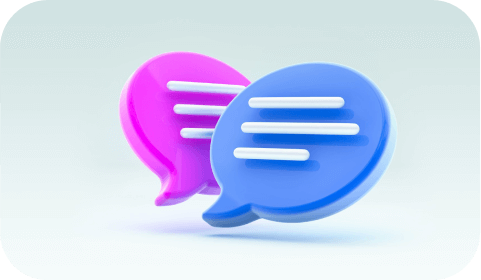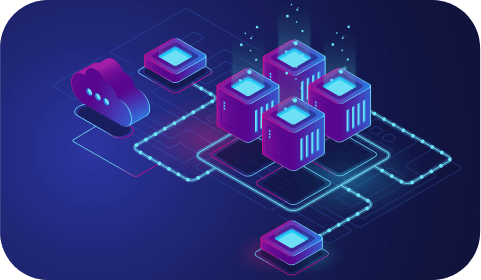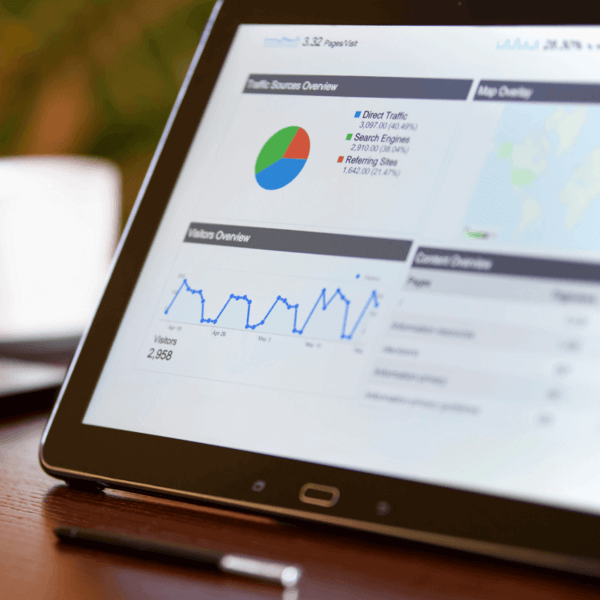Will Digital Marketing be Replaced by AI? – A Complete Guide
Digital marketing is thriving rapidly with the advent of a new player: Artificial Intelligence (AI). This advanced tech helps digital marketers promote their brands on social media, design compelling ad campaigns, and analyze website data to grasp what their customers want. But this raises a concern: will digital marketing be replaced by AI? Let’s dive deep into this question to find the answer.
5 AI-Impacted Aspects of Digital Marketing
Based on our experience, here are five key aspects of digital marketing impacted by AI:
Data Analysis and Insights
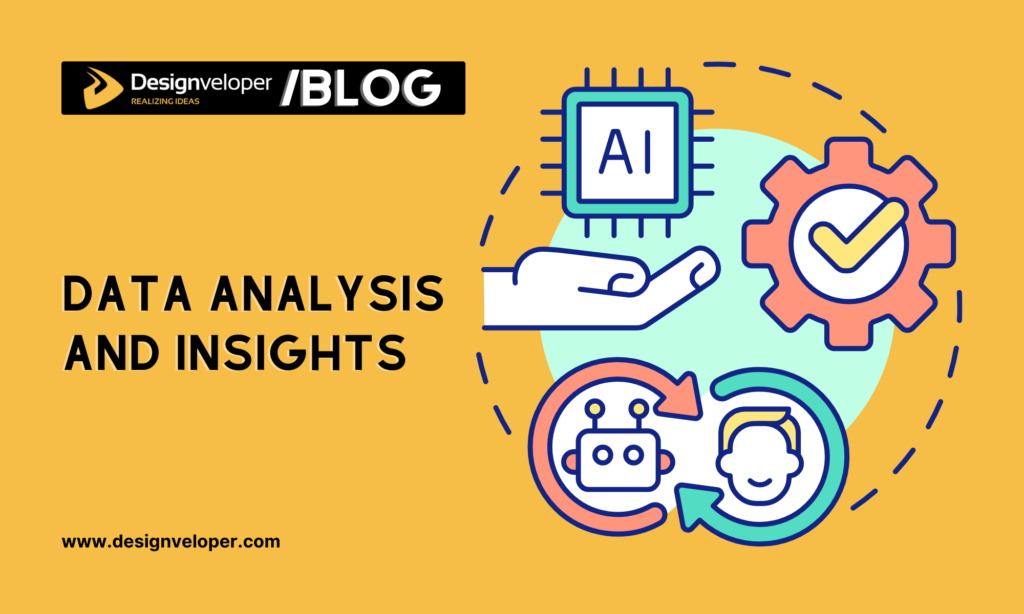
Digital marketing provides vast amounts of data (e.g., website clicks, email open rates, or social media management) to help you understand your customers. Before the coming of AI, analyzing this data was time-consuming and possibly error-prone. But AI steps in to facilitate this process. Here’s how:
- Reveal Hidden Patterns: AI can dig through vast datasets to discover hidden patterns and trends that humans might miss. All is done with high speed and accuracy. For example, in our marketing campaigns, AI helps us better understand customer behavior by analyzing data across platforms (e.g., websites, email campaigns, or social media platforms). This informs data-driven decision-making, optimizes our marketing campaigns, and improves our customer outreach.
- Forecast Audience Behavior: AI algorithms can analyze past customer behavior (e.g., purchase history, browsing, or search queries) to predict their future actions. At Designveloper, such tools as IBM Watson or Google Analytics integrate AI to anticipate customer behaviors and trends. This allows us to develop more effective advertising campaigns.
- Understand Your Competitors and Market: Such AI-powered tools as Sprout Social or Phlanx help you analyze your competitors and market dynamics. These tools can unveil the competitor’s marketing strategies, target audience demographics, and ad campaign performance. This gives valuable insights into your competitors, hence helping you devise winning strategies.
Content Generation and Personalization
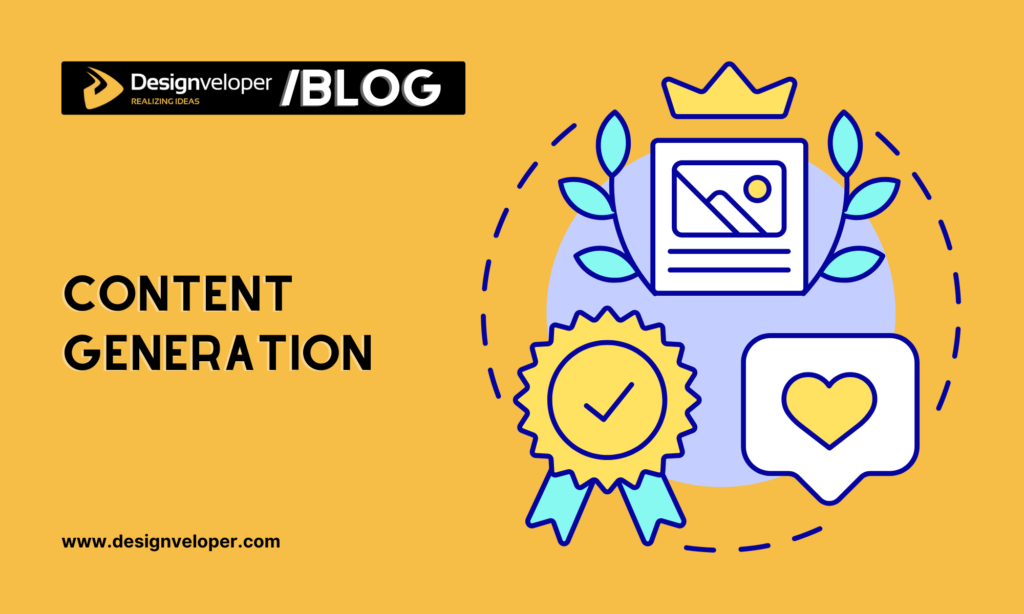
The global market for AI-powered content generation is estimated to expand at a CAGR of 13.6% from 2024 to 2034. Indeed, the advent of generative AI like ChatGPT enables digital marketers to create content that resonates with their audience. Here’s how:
- Content Creation: AI can help you generate different kinds of content, from blog articles to social media posts and email newsletters. At Designveloper, for example, we leverage BuzzSumo to analyze and discover trending topics. We then use OpenAI’s GPT-4o to support our creation of high-quality, engaging content based on these topics and Grammarly to enhance our content.
- Content Personalization: Some AI-powered tools like Mailchimp or Kalviyo integrate AI and automation functionalities to personalize messages, emails, and other marketing campaigns for each customer group. Several eCommerce stores like Amazon or Netflix leverage AI to provide customized recommendations for products and services. AI can do that by analyzing user data like past purchases, browsing behaviors, and demographics.
Paid Advertising Optimization
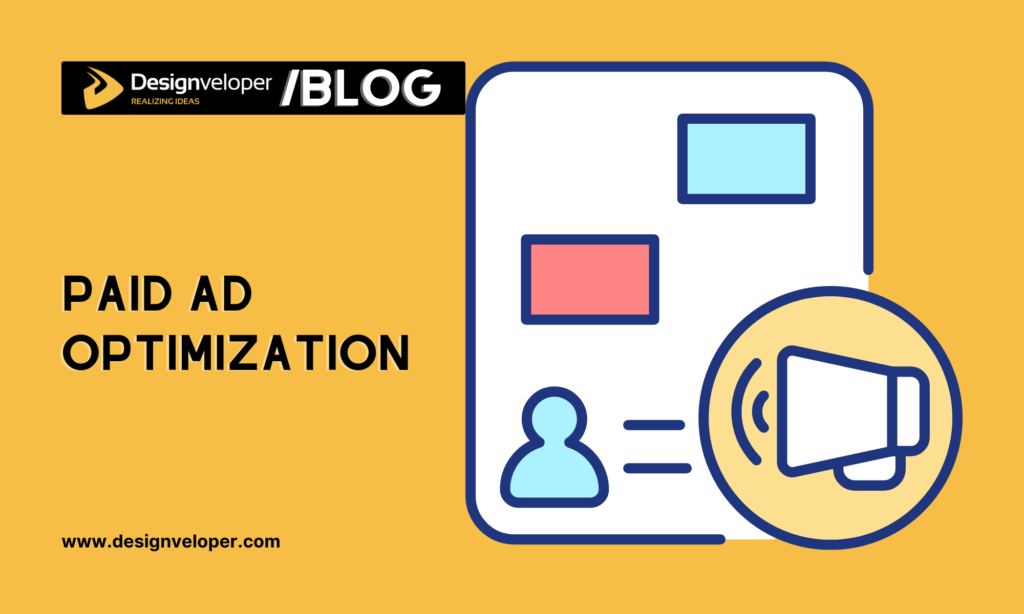
Gone are the days of throwing spaghetti at the wall and hoping it sticks with online advertising. AI is transforming how your company spends your ad budget, targets the right audience, and maximizes ROI. Here’s how it works:
- Targeted Campaigns: AI analyzes extensive amounts of user data to identify your potential customers with high accuracy. It also automatically sends personalized marketing campaigns to the right audience.
- A/B Testing: AI-powered tools like Google Optimize can run A/B tests on different ad versions at high speed. These tests compare headlines, images, and landing pages to see which ones resonate best with your audience. This data then allows you to constantly modify your campaigns for maximum effectiveness.
- Campaign Optimization: AI can optimize your online advertising campaigns by analyzing their real-time performance and suggesting proper adjustments. Our marketing team at Designveloper also leverages AI to improve our Google Ads and Facebook Ads. This helps increase click-through rates (CTRs) and reduce ad spending. Further, AI automatically sets ad prices, selects the right keywords and audience, and bring better results than traditional methods.
Social Media Management
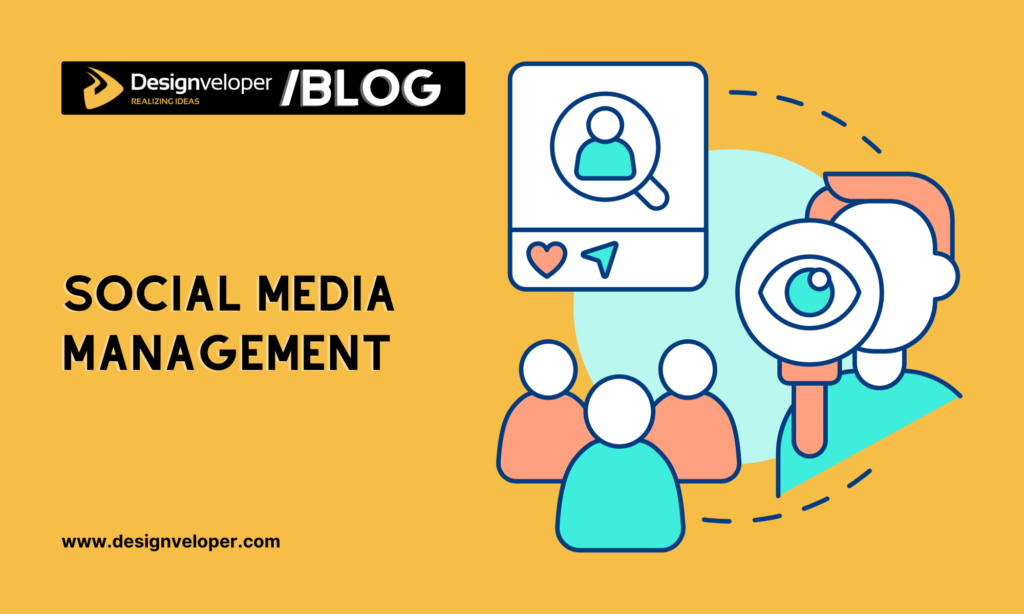
The global market of AI in social media is projected to increase from USD 2.1 billion in 2024 to USD 7.25 billion in 2029, equivalent to a CAGR of roughly 28%. So how is AI adopted in social media management?
As we all know, social media is about real-time interaction with your audience across platforms like Facebook or Instagram. But managing all these platforms and keeping content flowing can be daunting. That’s why AI steps in to help you streamline workflows and stay engaged with your audience. Digital marketing online certification courses now include AI lessons to gain knowledge on the latest trends and tools. They help marketers adapt to new challenges and seize opportunities in the digital space.
- Ease Scheduling: AI can schedule your social media content in advance. You may automatically send such content through action triggers. This will ensure your brand’s consistent presence across platforms.
- Automate Repetitive Tasks: AI tools like Hootsuite or Buffer can automate some tasks like sending birthday messages or responding to basic comments. This frees you to focus on more strategic initiatives.
- Boost Social Listening: Some AI-powered tools like Brandwatch or Awario facilitate social listening by tracking brand mentions, industry trends, and even competitor activities on social networking sites. This social listening intelligence ensures you can identify opportunities to engage with your audience and handle any potential issues.
SEO Performance
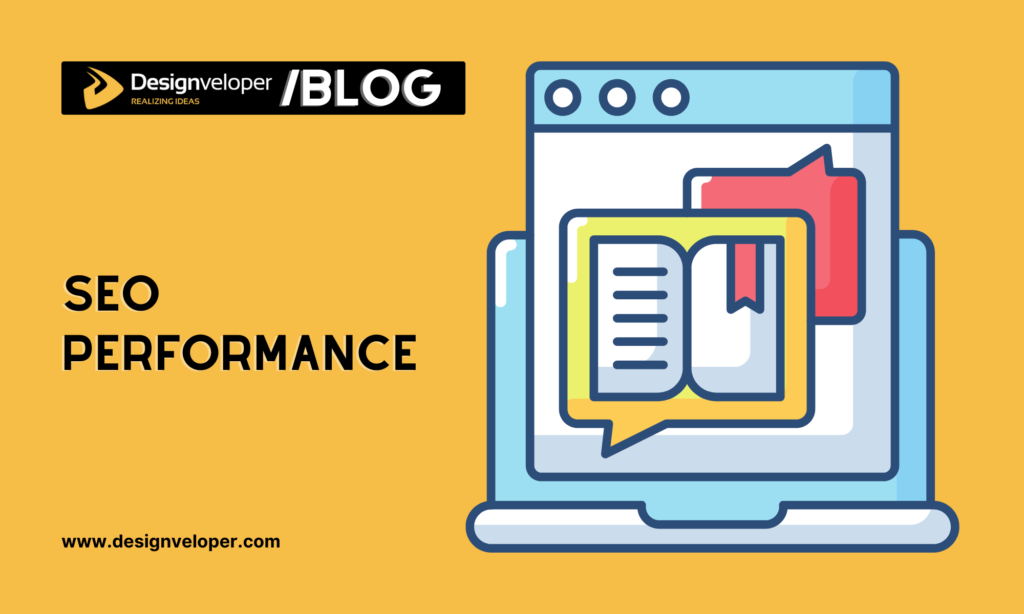
The goal of SEO (Search Engine Optimization) is to get your website seen by the right people at the right time. AI becomes helpful in ensuring your website can climb the search engine rankings. Here’s how:
- Keywords: Finding the right keywords to target is crucial for SEO success. At Designveloper, some AI-powered tools like Ahrefs and SEMRush help us research high-performing keywords that can resonate with our target audience and track their ranking.
- Content Optimization: By analyzing your website content, such AI tools as Clearscope can suggest ways to optimize it for search engines. This involves identifying relevant keywords, optimizing title tags and meta descriptions, and ensuring your content structure is friendly to search engines.
- Technical SEO: AI-powered tools like Ahrefs or On-page.ai can crawl your website and discover technical SEO issues that can hinder your ranking. These issues might be broken links, slow loading times, or mobile-friendliness problems. By fixing these issues, search engines can easily understand and index your website.
Will Digital Marketing be Replaced by AI? – 5 Things It Can’t Do
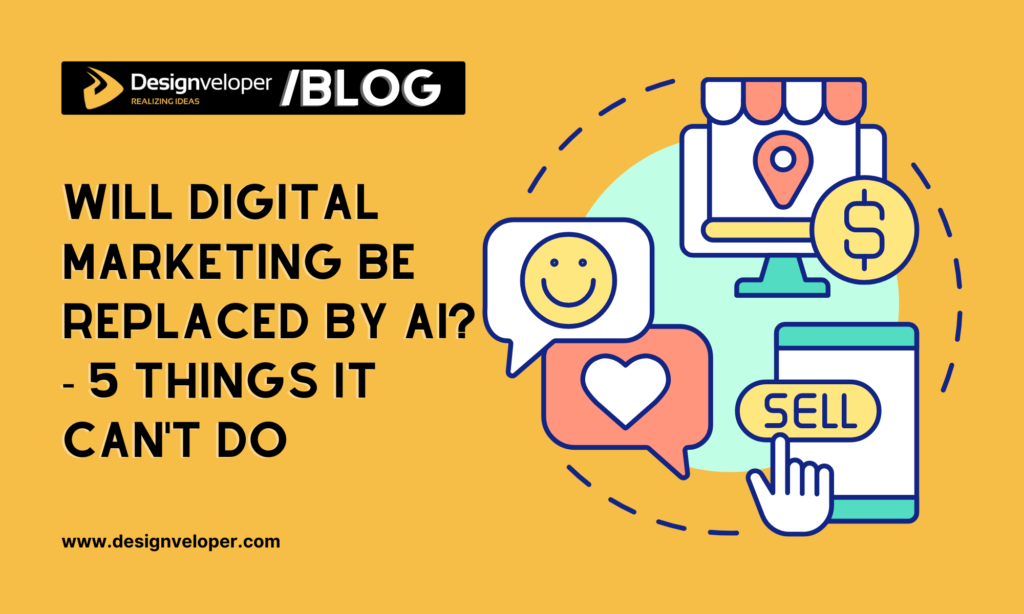
Despite what AI can do for us, it still raises a common concern: will digital marketers be replaced by AI? We would say no, but just to some extent.
According to one survey by Neil Patel, 55.5% of marketers (including freelancers, in-house staff, and digital marketing agencies) think AI will take over their jobs in the future. This results from 65% of employers having an eye toward replacing their existing staff with AI tools if the work results are comparable.
These findings show us that although AI can trigger massive layoffs, it can’t completely replace digital marketers. Accordingly, AI only replaces certain roles that might be time-consuming and error-prone to human digital marketers. Here are five things that human expertise remains irreplaceable:
Strategic Planning and Creativity
We admit AI can analyze data and identify trends or patterns more quickly and accurately than human digital marketers. However, it lacks the spark of human creativity.
Devising long-term marketing strategies and developing effective campaigns require the ability to think outside the box – this is what AI currently struggles with.
Humans, on the other hand, excel at understanding the big picture of marketing goals, target audience’s needs, market trends, and more. This allows digital marketers to craft innovative approaches that align with target customers.
Understand Human Psychology and Emotions
Marketing is something more than just data; it’s about understanding what makes people stick to your brand.
We have a natural advantage in interpreting consumer behavior and emotions. In other words, we can capitalize on storytelling, empathy, and humor to create marketing messages that emotionally connect with our target audience.
Meanwhile, AI can struggle to duplicate a human touch based on its training data to build emotional connections with potential customers.
Build Relationships and Brand Advocacy
Digital marketing is also about building brand loyalty and trust among your target audience. But this can’t be done just by showing the right ad. It requires enhancing genuine relationships with your customers.
We excel at this through personalized interactions, building connections, and resolving customer concerns. AI, despite being a big help in automating tasks, hardly replaces the human element in forging trust and improving long-term customer relationships.
Adapting to Evolving Technologies and Trends
The digital marketing landscape is constantly evolving. New techs emerge while consumer trends change rapidly.
We have a remarkable ability to learn and adapt, continuously honing our skills and staying ahead of the curve.
Meanwhile, AI requires ongoing training based on datasets related to those new techs and customer trends. This hinders AI from keeping pace with the ever-changing marketing environment.
Ethical Considerations and Crisis Management
Marketing decisions often involve ethical considerations. These ethical issues include:
- Truth in Advertising: Are your marketing claims precise and not misleading?
- Targeting Vulnerable Audiences: Do your adverts prey on the audience’s fears or insecurities to sell your products?
- Privacy Concerns: Are you collecting and using customer data responsibly and with their consent?
- Diversity & Representation: Are your marketing messages inclusive and avoiding harmful stereotypes?
We can navigate these ethical considerations, ensuring our marketing strategies fit brand values and social responsibility. Further, when unexpected situations or crises like technical malfunctions or negative publicity arise, we can deal with them based on our expertise and experience.
Meanwhile, AI may require human oversight and evaluation to address these problems effectively and protect your brand reputation.
Thriving in the AI Era: Skills You Need as a Digital Marketer
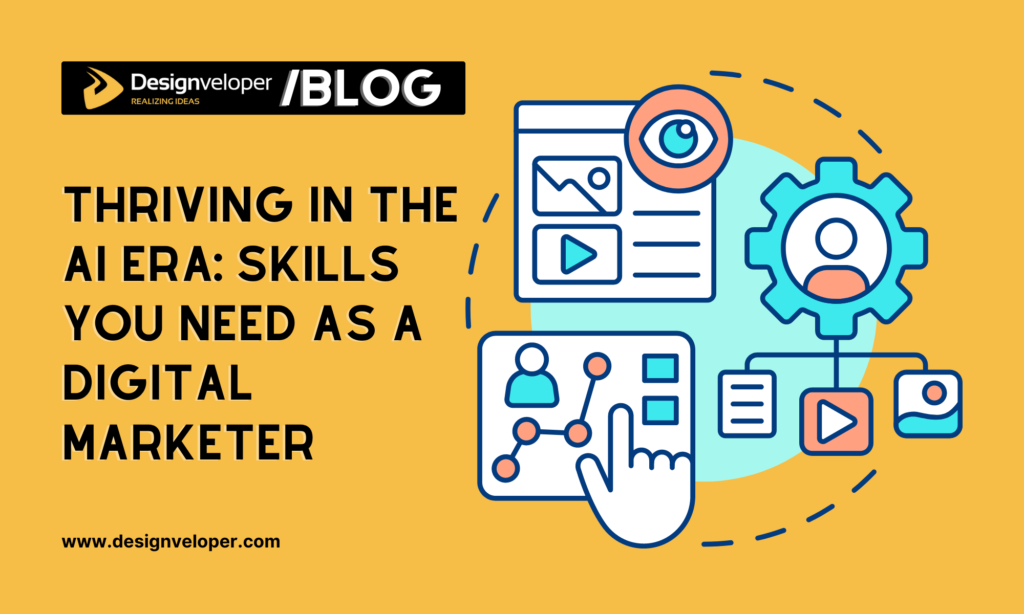
Although AI can’t entirely replace digital marketers, it doesn’t mean we can stay confident and do nothing. To stay competitive in this AI era, you need to be well-prepared for technical expertise and soft skills. Here are the five essential skill sets you should master:
Data Interpretation
In today’s data-driven world, understanding your audience is more important than ever. AI excels at collecting and crunching vast amounts of data. It even can provide recommendations to improve your marketing strategies, adverts, and offerings.
However, it does all these things based on its training data. If the market and your target audience are constantly changing while AI fails to keep pace with these things, AI-generated results might be wrong. Therefore, it’s your job to interpret what the data means. Coupled with your understanding of the ever-changing market, this interpretation can help you devise more informed decisions.
Here’s what you need to master:
- Understand Key Marketing Metrics: At Designveloper, we track key metrics like clicks, impressions, social media engagement, and more to understand how effective our marketing effort is and how our target audience is interested in our marketing content or ads. These metrics help us identify trends, understand customers, and measure the success of campaigns.
- Data Visualization Skills: AI can help you translate complex data into clear and compelling visuals like charts and graphs. But it can’t explain insights to your marketing team and stakeholders. Therefore, you need to learn how to tell a clear, easy-to-understand story about data and your marketing efforts.
- A/B Testing Expertise: Many people may struggle with how to use AI-powered A/B testing tools to compare different versions of their marketing materials and identify the most effective ones. So, one key important skill you should consider is leveraging these tools well to optimize your marketing efforts for better results.
Strategic Planning & Creative Thinking
As already said, AI can analyze data and suggest strategies. However, it lacks the human touch to devise effective long-term marketing plans. So, you need to hone your strategic planning and creative thinking skills through the following things:
- Set Clear Goals: You should define clear, realistic, and measurable marketing goals that align with your business values and your audience’s interests. This lays the foundation for successful campaigns.
- Develop Creative Marketing Frameworks: Don’t just follow the trends – set them! Think outside the box to craft innovative marketing campaigns that capture your audience’s attention and stand out from the competition.
- Craft Omnichannel Marketing: It’s important to deliver seamless marketing experiences across many channels (e.g., social media or email). This will ensure your message reaches your target audience wherever they are.
Storytelling & Content Creation
AI, albeit powerful and beneficial, can’t dethrone a human storyteller. Therefore, your ability to create compelling content that resonates with your audience is paramount. To leverage AI for effective content creation, you must acquire the skills as follow:
- Understand Different Content Formats: You should comprehend how to craft engaging blog posts, social media content, video scripts, and email newsletters. Here, you can create specific prompts that help AI better understand your intended content and customize it to each platform for maximum impact.
- Foster Storytelling Skills: AI can support you in telling a story. But it’s your job to decide how to tell that story by mastering storytelling techniques to connect with your audience on a deep emotional level. People remember stories, so use them to weave a narrative that positions your brand in a positive light.
- Use SEO Practices: You should optimize your content for search engines like Google to ensure your target audience can easily find it. This involves integrating relevant keywords and structuring your content in a way search engines favor. For example, WordPress’s Yoast SEO evaluates Designveloper’s blog posts based on metrics like keyphrase density, outbound links, or images. Further, Google now crawls and indexes a blog post that shares a brand’s experience and expertise.
Customer Communication & Relationship Building
While AI-powered chatbots can automate some client interactions, building strong, trust-based relationships with your customers is still a human skill. Here’s how to master it:
- Active Listening & Clear Communication: To understand your audience’s needs and problems, be a patient and active listener. Accordingly, you should communicate clearly, promptly respond to your audience’s feedback, and take action to address their challenges.
- Trust and Loyalty Building: To develop a trust-based rapport with your customers, you should be transparent and honest in marketing messages. Further, it’s vital to let your brand identity stay consistent across all interactions and platforms.
Stay Updated on Marketing Trends & Techs
The digital marketing world is constantly changing with emerging trends and techs. So, you should keep updated on new marketing trends to stay ahead of the curve. Here’s how:
- Read Industry Publications & Blogs: Such marketing websites as Marketing Dive or HubSpot Marketing Blog are valuable resources for you to stay current on the latest trends & best practices.
- Follow Industry Leaders: You can follow thought leaders in digital marketing like Pam Moore or Nei Patel to stay updated and gain inspiration for your marketing efforts.
- Experimentation & Iteration: Don’t be afraid to experiment with new marketing tactics and technologies. Use AI tools to your advantage, but always analyze the results and iterate your strategies for continuous improvement.
Conclusion
So, will digital marketing be replaced by AI? The answer is no as there are various digital marketing aspects that human expertise still remains irreplaceable. However, to survive and even be competitive in this AI era, you need to have good preparation, improve your expertise with skills, and never stop learning.
The future of marketing is all about AI and humans working together as a team – a dream team to create winning campaigns that reach the right people at the right time.
For more exciting information about AI in digital marketing, subscribe to our blog!















